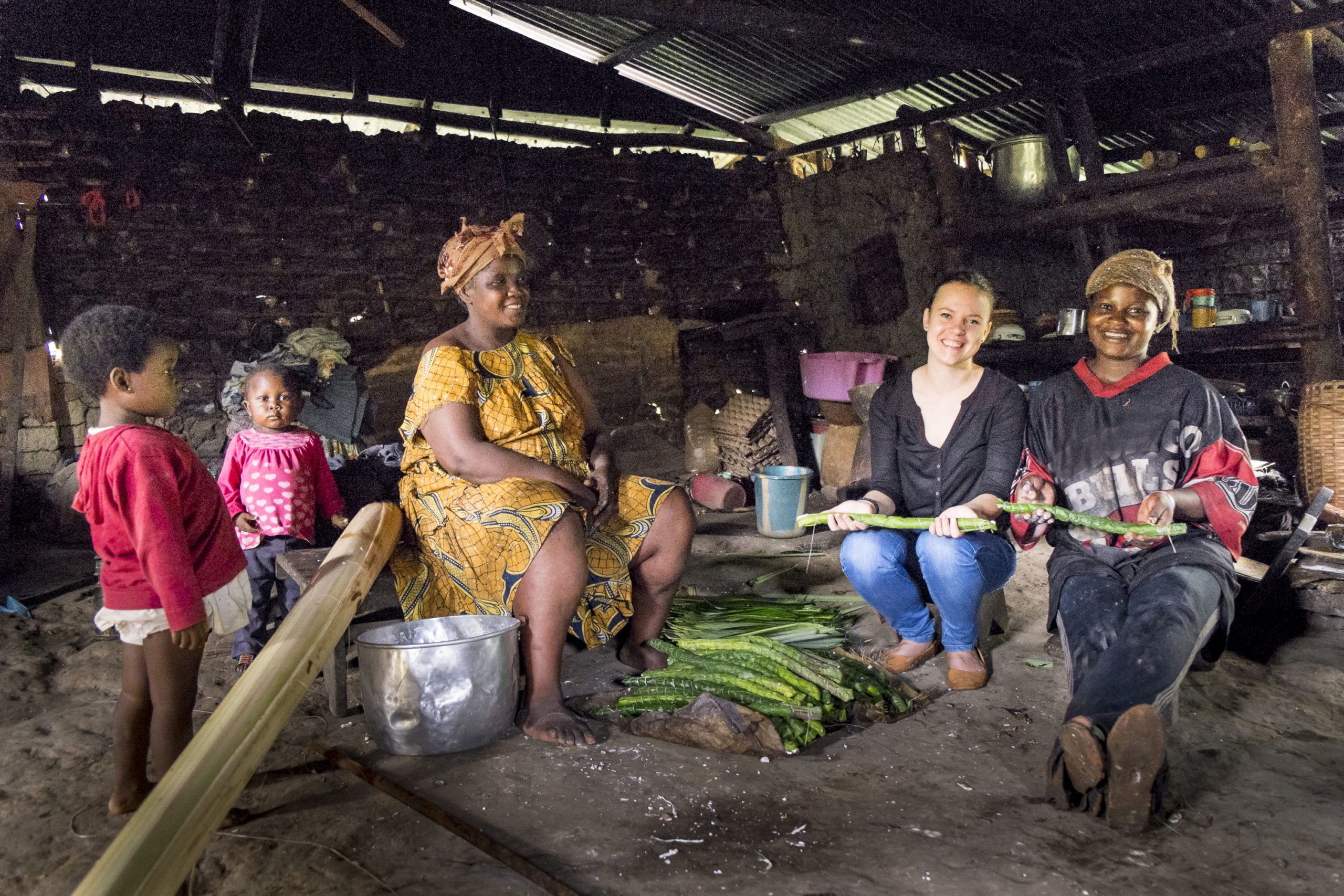Volunteering in the Tropical Forests of Cameroon
Story

Deep into the Congo Basin rainforest in southern Cameroon, 80 km away from any electricity, tarred roads, good telephone network or potable water, lies the municipality of Akom II.
With 25 villages and a population of about 25 000 inhabitants, the people’s livelihoods depend on subsistence farming with traditional methods, mainly the cultivation of cassava, maize, cocoyam, plantain, and their transformation into by-products.
That’s where we met Viviane Tardif, a Cuso International volunteer who’s lived with the community for over five months. “I feel at peace here” she says with a big grin. “When I leave the city and am slowly approaching the forest and all of nature, I can feel the calm. It’s beautiful”. Viviane serves as an Organisational Development Advisor for the local municipal council and is picking up from the work of six previous volunteers who’ve been here in the last two years.
For a community dependent on cassava production and transformation for its livelihoods, a cassava processing unit is vital to its economic growth. This is the gap Cuso International has been working to fill through its volunteers, who helped construct the processing unit last year. Today Viviane has helped set up the unit’s management committee, with whom she’s touring the villages to alert the populations of its contribution. “My role is to support the good governance of the factory in a multi-player and participatory management approach. First, the plant will benefit young producers of cassava and on the other hand, the stakeholders in the project.”
To the president of the management committee, Amvene Josue, Viviane’s role is more than just strategic “She is helping us ensure the management of this capital structure upon which Akom II’s economic future depends,” she says. “Isn’t that a big deal? We all think it’s a big deal. She’s bringing back hope to our small community and has a great relationship with everyone.” Viviane is quite humble about her input: “I don’t think I’m making a difference yet. I will have the feeling of making a difference when I reach my main goal: the start-up of the plant in a sustainable way.”
Her placement draws to a close in less than a month but she’s not ready to leave. “I would love to stay,” she says. “The beginnings have begun quietly and the plant is still not running so I plan to extend. The community places great hope in this project. They want, among other things, to fund their children’s education with the benefits and I want to see that happen before I leave”.
MAKE A DONATION AND HELP SEND MORE VOLUNTEERS WHERE THEY’RE NEEDED MOST